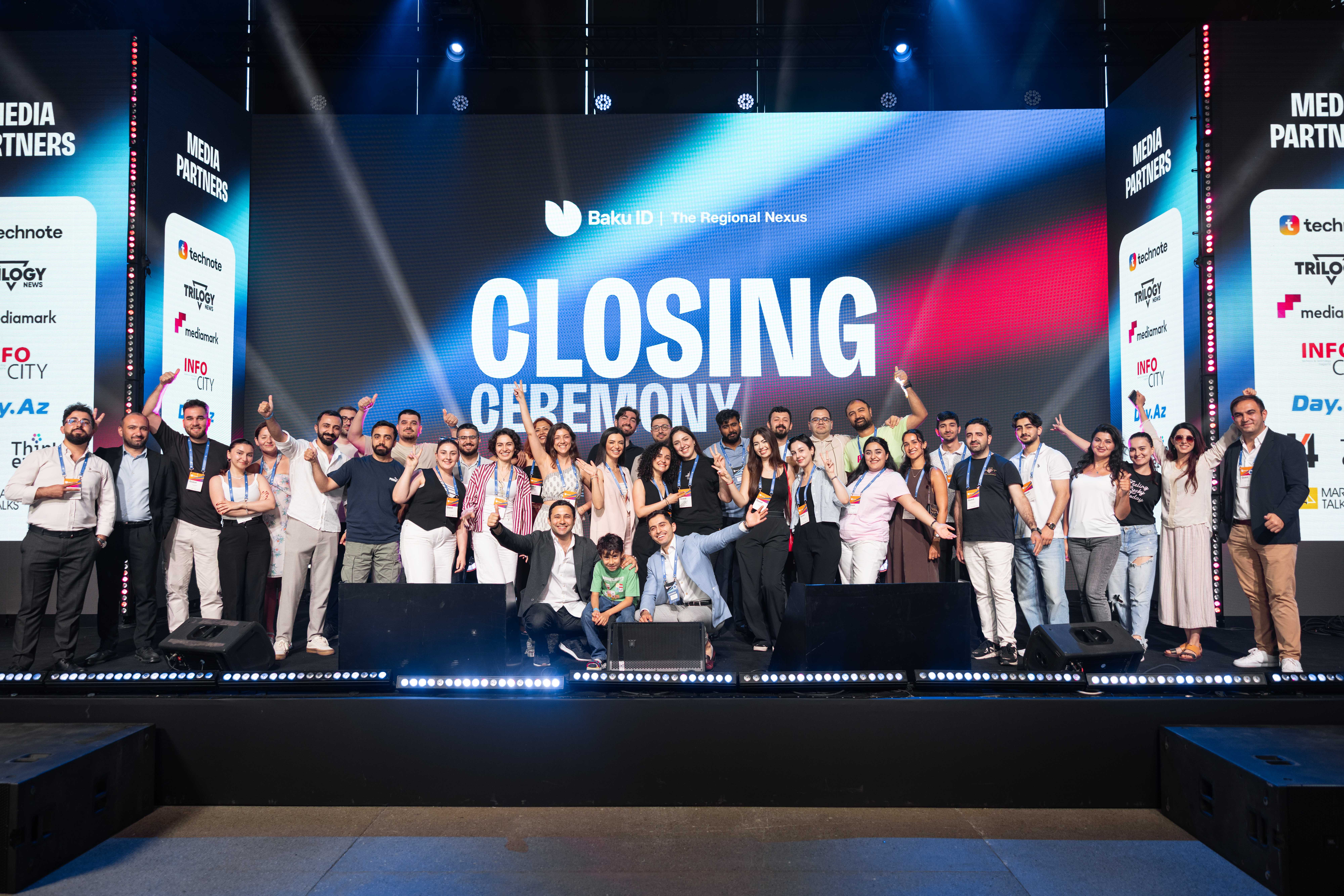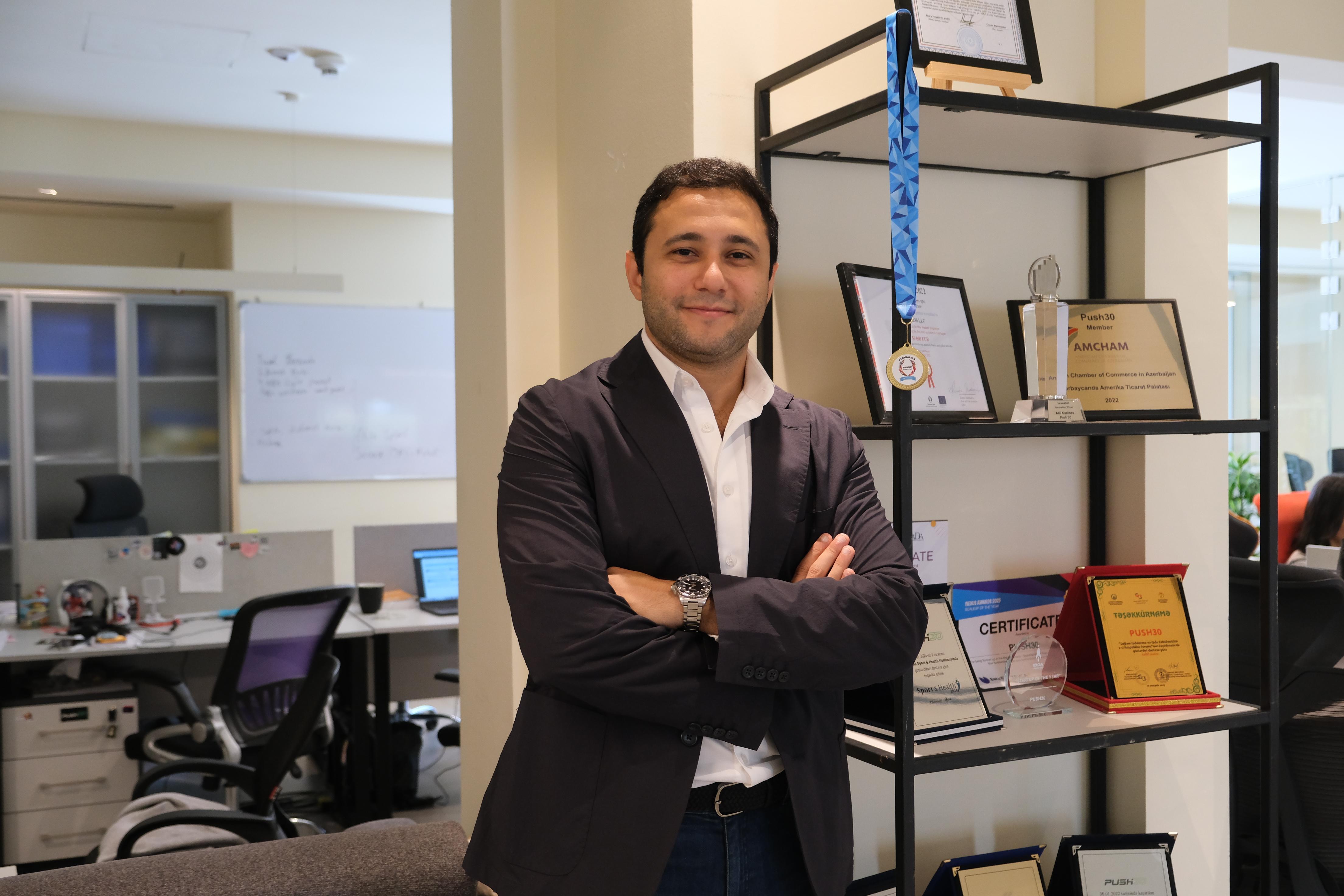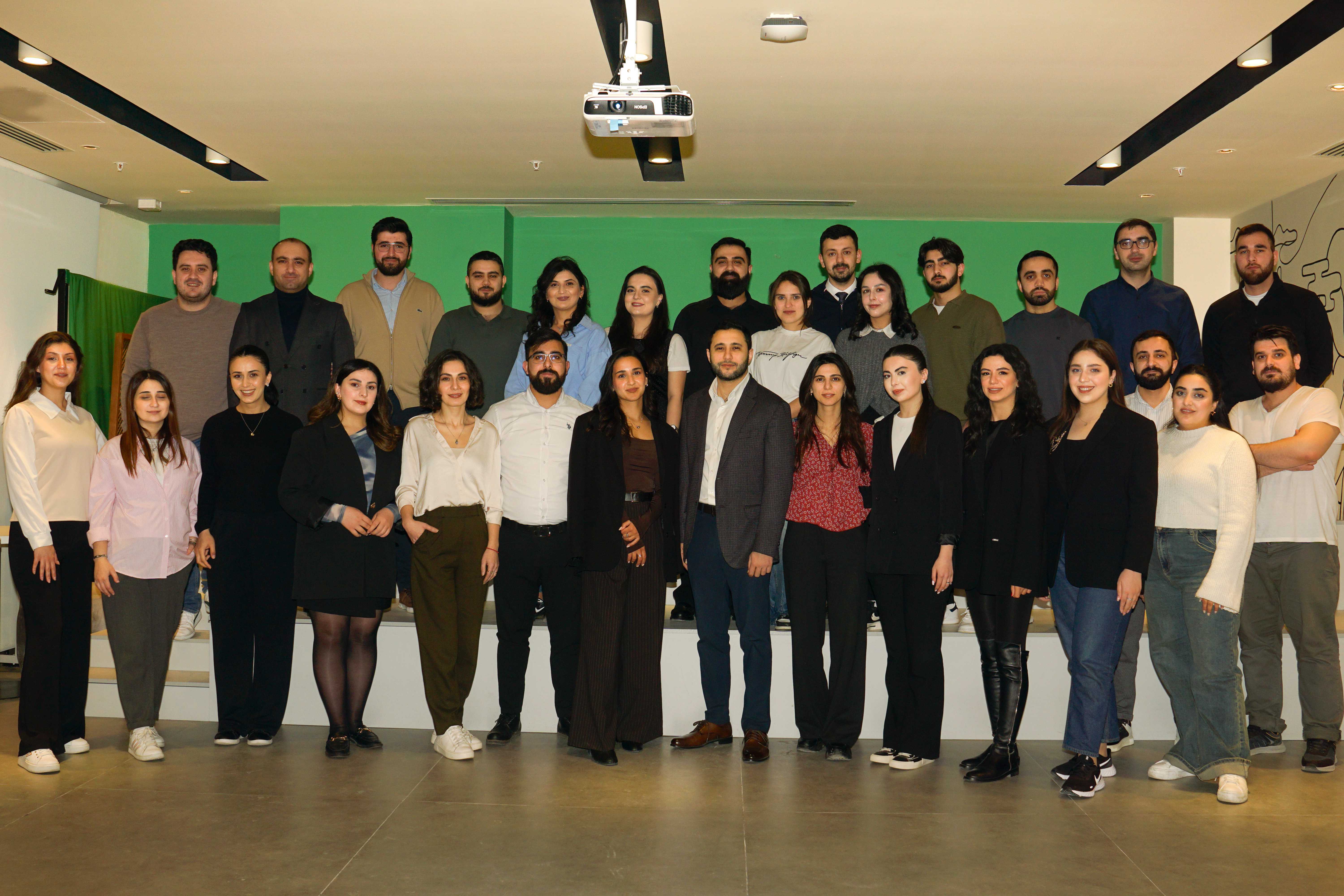IT Park Uzbekistan and Spot spoke with the founder of the platform, Adil Gasimov, about the origins of the company, the reasons behind higher sports costs in Tashkent, and how the startup has become an integral part of corporate culture in the region.
Push30 is an Azerbaijani startup in the field of corporate fitness, established in 2019. The company provides a B2B solution whereby employers purchase subscriptions that employees use to access a network of partner gyms, studios, swimming pools, and other wellness facilities through a single application. Push30 manages all contractual and technical processes, sparing companies the need to conclude agreements with individual clubs.
The idea for Push30 was born out of a personal need — the desire for a convenient and flexible way to exercise. What began as an internal solution to a single company’s challenge evolved into a scalable B2B platform.
Today, the service operates in Azerbaijan, Uzbekistan, and Kazakhstan and is preparing to enter the Middle Eastern market. Among its clients are major corporations, and the model remains B2B-focused: subscriptions are fully or partially covered by employers.
In June, Push30 raised $300,000 from IT Park Ventures, bringing the company’s total investment volume to $1.8 million. Its investors include Caucasus Ventures, Aloqa Ventures, Whitehill Capital, and angel investors from across the CIS.
IT Park Uzbekistan and Spot spoke with founder Adil Gasimov about how it all began, why Push30 entered the Uzbek market as one of the first, and how the startup has grown into part of the corporate culture in the region.
In 2019, while employed at one of Azerbaijan’s largest banks, I faced the challenge of exercising in a flexible and convenient way. Gyms offered only annual memberships, inconvenient schedules, and the location of gyms often conflicted with work and home.
I approached HR with the idea of providing employees with fitness benefits. The response was understandable — while they welcomed the idea, they did not have the capacity to research clubs, negotiate agreements, and compare terms — an especially resource-intensive process for companies with hundreds of staff.
This prompted me to ask: why had no one created a simple digital product that could connect companies, gyms, and employees?
That was the beginning of Push30. We launched the same year and immediately saw market interest. However, the pandemic forced us to halt scaling. We kept the team together and continued refining the product.
Once restrictions were lifted, Push30 expanded rapidly. Within the first year after resuming operations, we grew significantly in both users and partner gyms.
At launch, there were no comparable solutions in the market — neither B2B nor B2C. This proved both an advantage and a challenge. On the one hand, there was no competition for market share. On the other, we were the first to shape this culture: convincing companies of the value of fitness benefits, training gyms to work with corporate clients, introducing processes, and shifting mindsets. We are confident that we succeeded.
Since its inception, Push30 has attracted approximately $1.8 million in investment. Our investors include Caucasus Ventures, IT Park Ventures, Whitehill Capital, and angel investors from the CIS. We engaged them through industry events, networking, and personal recommendations, including connections via Baku ID, accelerator programs, and business communities.
Funds have been allocated to market expansion in Uzbekistan and Kazakhstan, as well as to product and IT infrastructure development.
We have been member of IT Park since entering the Uzbek market, which enabled us to establish ourselves as reliable partners with tangible traction and a clear development strategy. This relationship facilitated a $300,000 investment from IT Park Ventures.

These funds are being directed toward expansion into new markets, growth in existing ones, and optimization of the product and IT.
On average, securing investment takes three to six months, depending on product maturity, stage, and investor confidence. At present, we are undergoing due diligence with several potential investors and have already secured binding and preliminary commitments covering nearly half of the upcoming round.
Uzbekistan was the first market we entered outside Azerbaijan. We selected this market after conducting analysis. In 2023, the fitness market in Uzbekistan was valued at approximately 1 trillion UZS, with fitness service penetration not exceeding 3%. We observed rapid growth in Tashkent, the emergence of a fitness culture, and a developing startup ecosystem, but with limited product diversity. Uzbekistan became the first logical step outside Azerbaijan due to cultural and value similarities among people.
Subsequently, we expanded into Samarkand. This was a logical progression within Uzbekistan, driven by the development of the local fitness market, the construction of new facilities, job creation, and demand from our client companies in Tashkent.
The fitness market in Uzbekistan is expanding but remains nascent. While quality gyms and demand exist, there is limited understanding of how to build digital business. Our main competitor is the entrenched habit of using a single gym or not exercising at all.
The market also includes 1Fit, which offers similar services. However, we target different segments and do not view them as direct competitors. Rather, we see ourselves as contributors to a shared ecosystem aimed at developing the regional fitness market.
The launch in Uzbekistan was challenging — our brand was unknown, and sales began from zero. We built a team, explained the product, and marketed without recognition. Encouragingly, local companies proved highly receptive to supporting employee wellness. Today, 96% of our Uzbek clients fully cover subscription costs for their teams.
Our client base includes major corporations in the financial, banking, oil and gas, and telecommunications sectors. At the same time, we also serve small and medium-sized businesses, particularly in the IT and innovation fields.

Fitness services in Uzbekistan are typically more expensive for several reasons. First, the market is relatively young, and many gyms cater to the premium segment, which drives up average prices.
Second, market analysis in 2023 showed record growth rates: in nominal terms, the market grew by approximately 30%, with absolute growth exceeding 250 billion UZS. The total number of fitness facilities in the country surpassed 1,000.
Growth was driven not only by new openings but also by significant price increases — on average, nearly 15%.
As a result, our packages in Uzbekistan are more expensive: in Baku, the standard corporate subscription is about $60 per month, while in Tashkent it is $100. However, our model has been adapted to account for local price sensitivity.
Our revenue comes from monthly and annual subscriptions paid by client companies, while partner gyms are compensated for employee visits.
We currently serve over 15,000 active users in Azerbaijan and more than 3,000 in Tashkent and Samarkand.
The average user is aged between 25 and 40, an active professional working in an office or with a flexible schedule. Most are employees of large companies who value health and work-life balance.
Flexibility is particularly important to our users: the ability to choose among gyms, yoga studios, and swimming pools depending on mood, time, and location. They also value convenience — avoiding the need for multiple individual memberships.
Many of our users are individuals who long wanted to try a new sport but hesitated. Push30’s flexibility enabled them to begin training and discover activities that genuinely motivate them.
Each account is assigned to one user, and the end users of our product are employees. However, subscription decisions are made by employers. Importantly, companies often respond to employee demand, meaning staff interest significantly influences decision-making.
Accordingly, our marketing targets not only HR departments and executives but also employees. We ensure employees understand the value of the product and remain engaged. To achieve this, we organize meetings with client teams, explain the product in detail, answer questions, and, when requested, involve representatives from our fitness partners. This makes communication more interactive and effective.
Our clients include SOCAR, BP, all members of the “Big Four”, BCG, and many others. Our primary focus is B2B, as the corporate segment allows for more stable and rapid scaling while fostering strong partnerships with gyms.
Unlike B2C, we do not overwhelm gyms with sporadic users. Instead, we connect companies and deliver a solvent, previously untapped audience of employees who would otherwise not join gyms.
We also employ a B2B2C model in certain cases, where companies partially subsidize subscriptions and employees cover the remainder. However, we minimize such cases, as full employer coverage ensures significantly higher engagement and overall program effectiveness.
The market currently lacks transparency. Many gyms and services are not sufficiently open about pricing, service terms, or capabilities, which creates mistrust and complicates decision-making.
The customer experience is often inconsistent. The industry lacks unified service standards — from booking convenience to client support — leading to reduced loyalty and retention.
There is also a shortage of modern digital solutions. Many fitness centers continue to rely on outdated systems, lack mobile applications, and are not integrated with corporate services, limiting user convenience and management efficiency.
Moreover, there is insufficient effort by both government and business to promote wellness culture. Few programs encourage healthy lifestyles and exercise, particularly at the corporate level. Greater awareness of wellness benefits and supportive measures from both state and private sectors are needed.
Partnerships with gyms developed relatively smoothly: we brought them new clients, filled off-peak hours, and they quickly recognized the value.
Working with companies was more complex. They must allocate budgets, which requires them to view employee wellness as an investment rather than an expense. We conducted dozens of meetings and presentations, building trust through direct engagement. Once companies joined, the benefits became immediately apparent, and most remain long-term partners.
Earning user loyalty was also essential. Since the concept was unfamiliar, it was critical to demonstrate the value of flexibility, variety, and self-care. Today, many employees in Azerbaijan already view Push30 as a “must-have” benefit when choosing an employer. This reflects the trust and standards we are building.

At the beginning, Push30 consisted of myself and my co-founders. Today, the company has over 70 employees across three markets. The success of Push30 is the result of collective effort. Each team member contributes significantly, and the high level of commitment and responsibility is especially valuable. Everyone treats the company as their own, which is rare, and this sense of ownership drives progress even under challenging conditions.
We are considering the introduction of an employee stock option program in the near future. This is the logical next step given our stage of growth and plans for further expansion.
In Uzbekistan, we started with three employees. Today, our Tashkent office has a team of 17, including local staff in sales, partner relations, and other key roles.
As with any startup, priorities, processes, and tasks change rapidly. This can be demanding, especially in new markets where we often hear “no”. We therefore particularly value flexibility, adaptability, determination, and persistence. Success does not always come immediately, but accountability is crucial: we seek individuals who take ownership, accept responsibility for results, and see tasks through to completion.

Push30 focuses on several key performance metrics.
First, active users. This indicator is directly linked to seasonality — in most markets, fitness activity peaks in January and February and declines in July and August. With this in mind, we provide the widest possible range of options — from yoga and dance to swimming pools and rehabilitation centers — to ensure users can find suitable activities year-round and for any mood. At present, across our three markets, we have over 18,000 active users.
Second, partner and client retention. This is as important as user metrics. We are proud that around 90% of gyms and companies that have ever worked with us remain partners today. This reflects a deliberate partnership strategy and high-quality client support.
Naturally, financial indicators are also vital, including gross margin and the path toward profitability. We monitor the effectiveness of our business model in every market where we operate, striving for sustainable growth.
The MENA region is our next major step. We have already registered a company in Saudi Arabia and conducted dozens of meetings with potential partners and investors.
When Push30 becomes the standard for corporate wellness in the region, we will confidently consider ourselves a “large company”. When HR in any company says: “We need Push30 — otherwise people will not join our company”.
There are, of course, difficult periods. But I continue moving forward, driven by several key motivators. First and foremost, the mission of Push30 — our team is determined to transform the region and beyond, making people healthier and helping them discover sports they genuinely enjoy. We have ambitious plans to develop a comprehensive ecosystem that will further improve user wellbeing.
Second is my team. Each time I enter the office and see these motivated, dedicated professionals, I am reminded of the scale of what we are building and the potential for success with such people beside me. This gives me strength and inspires me not to give up.
I have grown alongside my business. Over time, I have become more composed and calm. I have gained maturity and strategic thinking. I rely increasingly on data rather than intuition alone. I have learned to build teams in new markets and to place trust in both people and processes. Most importantly, I consistently return to the essence of the product and maintain focus, even amid distractions and parallel tasks.
If you are just starting your own business, learn to live with challenges. A startup is not defined by the absence of problems, but by the ability to overcome them. The key is to remain focused and move forward step by step.